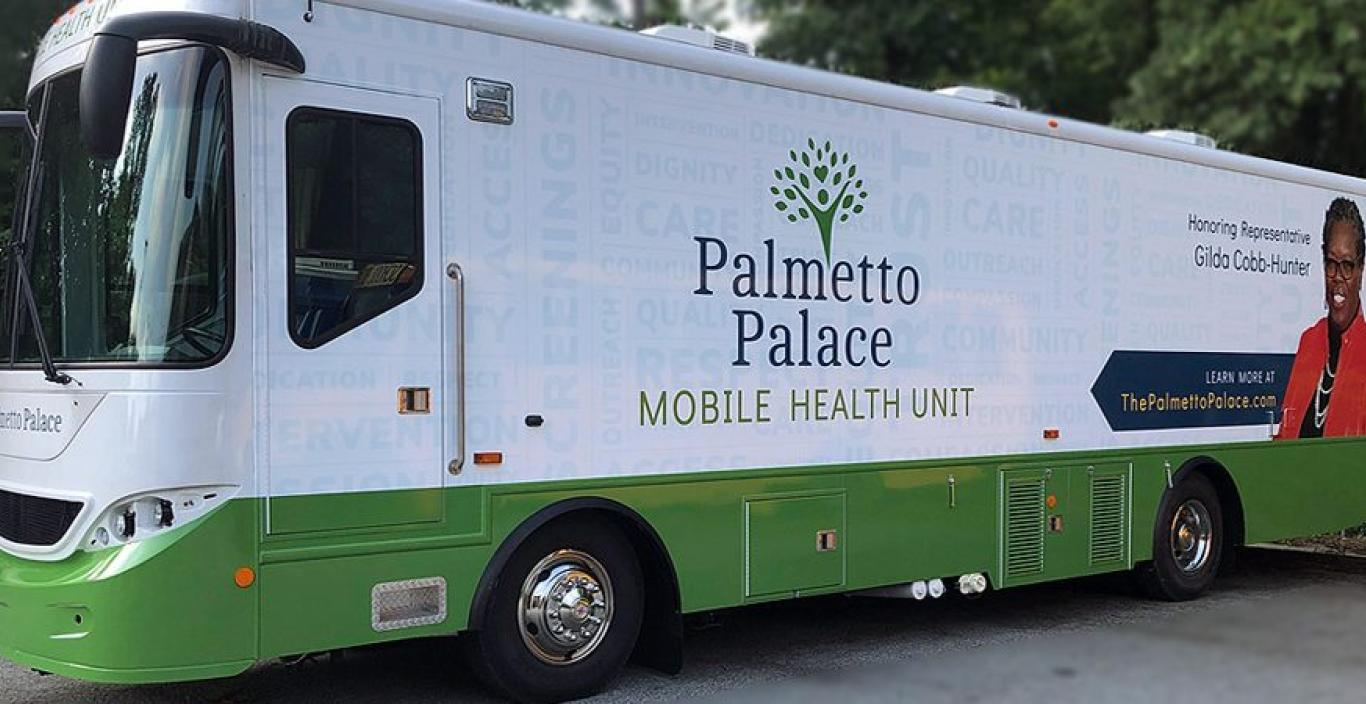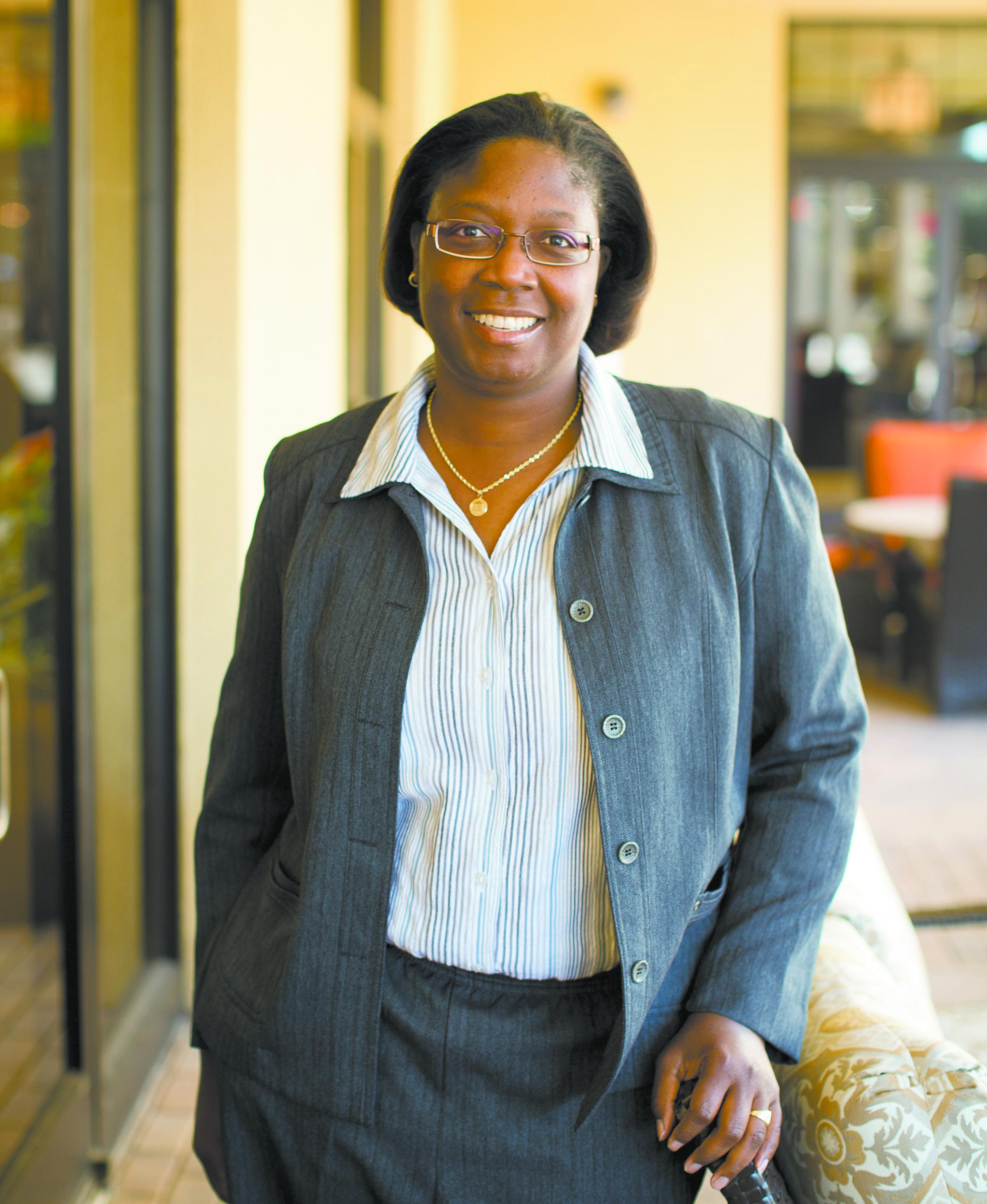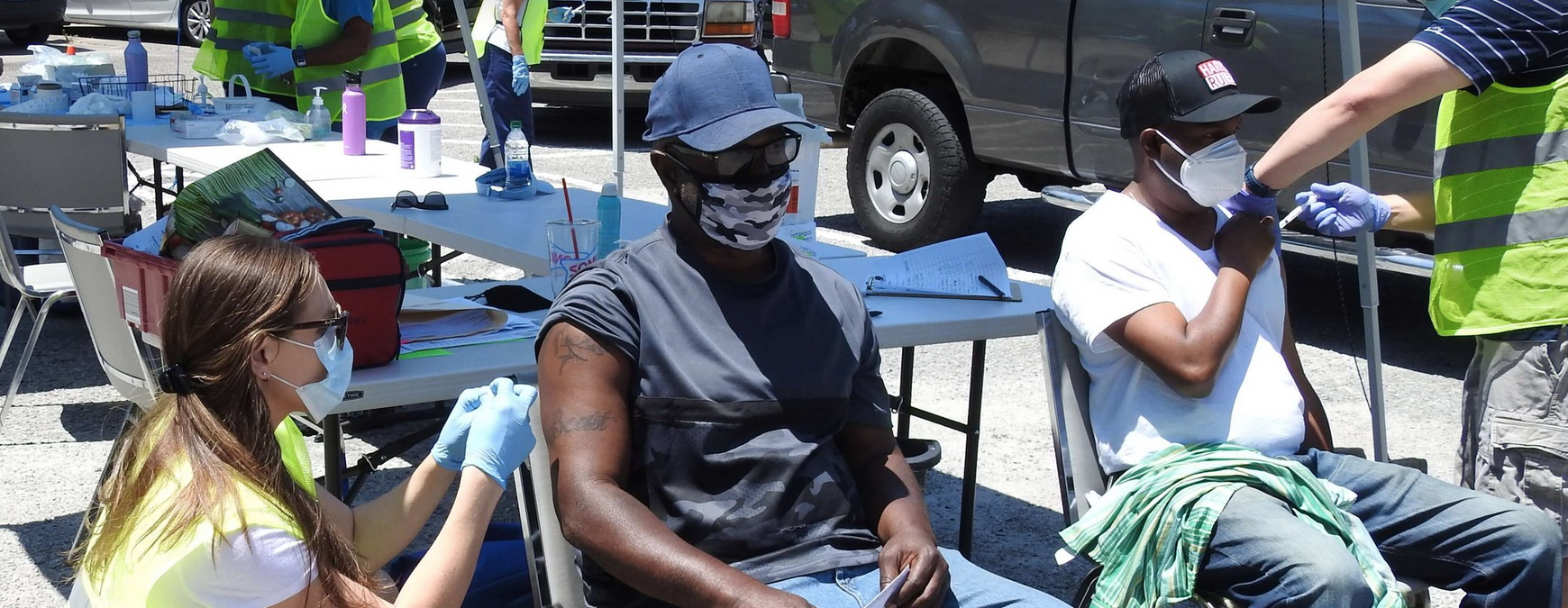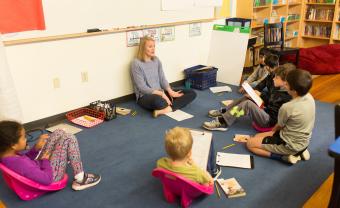While working as the family care manager at Charleston, South Carolina’s Roper Hospital, Youlanda Gibbs ’01 began to notice that the same people who were in the waiting rooms when she left work were there when she returned.
“It bothered me,” said Youlanda.
She learned that many of them were from rural counties, lacked transportation to go to and from the hospital, and were the breadwinners in their family — meaning they were missing work while waiting for news about their loved one.
There was a gap in services such that most of the people didn’t qualify for the temporary housing provided by nonprofits.
Youlanda told her godmother about it. She replied, “You are so concerned about these people. Have you ever thought that God wants you to do something about it?”
Until then, Youlanda never had, but that prompt eventually led her to create the Palmetto Palace, a nonprofit that began as a way to house those people in the waiting rooms. It has since turned into a mobile healthcare unit trying to prevent South Carolina’s rural poor from ever needing to go to the hospital in the first place.
At home on Johns Island
Youlanda was familiar with the conditions of the rural poor in South Carolina. Growing up, she’d been among their number. Raised on Johns Island, about an hour from Charleston, she says there were “lots of trees. Lots of fields, but not a lot of resources.” In 1989, Hurricane Hugo, a Category 5 storm, further strained their area.
“We lost everything. When you’re living in a rural area, natural disasters do impact you in the worst kind of way.”
Yet the area was “rich with tradition” and Youlanda learned the value of community from her mother, who despite going blind from a degenerative eye illness, was always generous.
“I saw how she persevered and really was trying to help people with what she had,” Youlanda remembers.
That’s one of the reasons she felt drawn to healthcare. But she was also compelled toward education. Youlanda, who earned a master’s in education from Lesley and has taught at the college level says, “(Education) has been the tool and the vehicle to drive all of my work. It was the framework.”
As a girl, books transported her to places she would one day hope to experience herself, and encouraged her to further her education while also looking for ways to help others in her community educate themselves. Eventually, that led her to found Palmetto Palace — palmetto, the state tree, and palace because it evokes the idea of a place where all your needs are met.
A pandemic pivot
While the nonprofit started out as a sort of Ronald McDonald House, Youlanda began to envision another way to alleviate the problem of people piling up in hospital lobbies — easy access to preventative healthcare that included education about how, when and where to get the best treatment.
People unnecessarily end up in the ER for several reasons, Youlanda found. For some, it was due to a dearth of doctors in their area, many of which were only open during hours when patients were working. Many people ignored health issues until they reached a crisis point that forced them into the hospital. Others called 911 not realizing there were better options available, ones that didn’t burden first responders. The teacher in Youlanda wanted something better for her rural kinspeople.
So, in July 2019, the nonprofit rolled out a mobile health unit staffed with a medical director, nurse practitioner and a registered nurse. The program partners with churches and community organizations to establish the best places to set up the vehicle, which is equipped with telemedical services that allow the nurses to communicate with their partner hospital for additional support.
The Palace on wheels targets chronic disease management, women’s health and mental health for residents 15 and older. It visited communities on Saturdays and Sundays, when the most people would be available.
“The community truly has embraced this nontraditional model of healthcare coming to them,” says Youlanda.
That connection proved crucial when, seven months later, the pandemic shut down regular operations. When vaccines became available, Youlanda and her team quickly turned the unit into a vaccine station and have since administered more than 9,000 shots, but they’re eager to return to the mobile unit’s original purpose this spring.
“I think we’ve built a level of trust in the community,” says Youlanda. “The people actually feel as if we care about them because we do.”
As the work of the Palmetto Palace continues, Youlanda envisions a fleet of mobile health units.
“We believe we will be able to help people in the community to live longer, for folks to be empowered with their health and to have a quality life,” she says.
Related Articles & Stories
Read more about our faculty, students, and alumni




